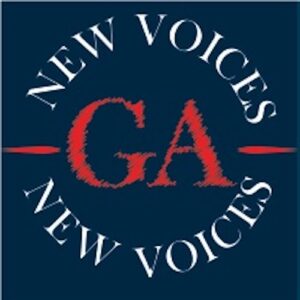
High school journalists across the country have long provided news reporting, political and social commentary, and valuable perspective on issues of public concern to their readership.
Norins, C; Harmon-Walker, T. and Tharani, N., Restoring Student Press Freedoms: Why Every State Needs a “New Voices” Law, 32 GEORGE MASON UNIVERSITY CIVIL RIGHTS LAW JOURNAL 63 (2021).
*****
High school journalists across the country have long provided news reporting, political and social commentary, and valuable perspective on issues of public concern to their readership. In an age of dwindling commercial print media, student journalists also serve as an important source of local news, not only for their classmates but for their surrounding community.
Yet, student journalists operate with varying degrees of speech and press freedom depending on whether their state has enacted legislation safeguarding free expression in school-sponsored media. This patchwork of state protections is a direct result of the Supreme Court’s 1988 decision in Hazelwood School District v. Kuhlmeier, which affords school administrators broad discretion to censor school journalists’ speech, while other forms of student speech remain more highly protected.
Since the 1969 case Tinker v. Des Moines Independent Community School District, the Supreme Court has maintained that students do not “shed their constitutional rights to freedom of speech or expression at the schoolhouse gate.” In Tinker, the Court held that the First Amendment protects students’ speech and expression up until it creates a reasonably foreseeable risk of “substantial disruption” of or “material interference” with school activities. The “Tinker standard” allowed for robust free-speech protections for all students, including student journalists, for almost two decades.
But in 1988, the Supreme Court walked back the Tinker standard for student journalists when it decided Hazelwood. In that case, the Court authorized school officials to censor the content and style of school-sponsored media so long as the decision to censor is “reasonably related to a legitimate pedagogical purpose.” This means that school administrators can also discipline or threaten the employment of journalism advisers if they object to censorship of their students’ work.
In the more than 30 years since Hazelwood, prior review and censorship of student journalists, particularly at the high school level, has proliferated and continues today. The Student Press Law Center (SPLC), a national First Amendment non-profit, has documented recent examples of student press censorship across the country: Student Journalists in 2020: Journalism Against the Odds.
To counter the effects of Hazelwood and suppression of student journalists’ expression rights, the SPLC has spearheaded a legislative initiative known as “New Voices.” This initiative aims to reinforce the Tinker standard through passage of state laws that prohibit restricting the speech of student journalists and their advisers. As a result, as of March 2023, 17 states now have a law on the books protecting the speech and expression rights of student journalists.
Georgia’s State Constitution affords broad free speech protections to all Georgia citizens that would be consistent with a “New Voices” statute for student journalists. But Georgia has yet to consider such a law, leaving Georgia’s high school students and their advisers vulnerable to Hazelwood-enabled censorship by school administrators. Indeed, Georgia’s state-wide teaching standards specifically incorporate Hazelwood-based censorship as part of journalism advisers’ official job duties.
Student journalists and journalism advisers may wish to consider whether student journalism in Georgia should once again receive the same protection as other forms of student expression under the Supreme Court’s Tinker standard. If you would like to learn more about the “New Voices” movement, including how to become active in Georgia, please contact newvoices@splc.org.
Prepared April 2021 by Taran Harmon-Walker & Navroz Tharani, updated August 2023
“New Voices Flyer” created November 2021 by
Clinic students Katie Freeman & Brianna Yates

The Issue
Student First Amendment Rights
The First Amendment protects students and student journalists from censorship and retaliation in public schools and universities. As the Supreme Court has explained, students do not “shed their constitutional right to freedom of speech at the schoolhouse gate.” Read more about our work on behalf of students and student journalists here.
Explore Issue